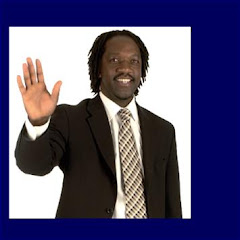Adams County (USA) sued by a deaf man held for 25 days without access to an Interpreter reports Monte Whaley for the Denver Post (28/11/11).
When Adams County sheriff's deputies knocked down the motel-room door of a deaf couple, slammed the man to the ground and locked him in jail for 25 days without providing a sign-language interpreter, they violated the Americans With Disabilities Act, a federal lawsuit says.
"There were 25 days of his life that he had access to nothing — no information on why he was being held, no information about his case or what was going to happen to him," Williams said.
The Colorado Cross-Disability Coalition advocacy group is also a plaintiff in the suit. Adams County Sheriff Doug Darr is named as the defendant.
An Adams County Sheriff's Office spokesman on Friday did not have any comment on the lawsuit, saying officials needed to review it first.
The suit asks for damages for Siaki and Moore and to find that Adams County is violating the ADA by not providing an interpreter nor auxiliary aids for deaf suspects during their arrest and booking process.
The suit claims Adams County also does not provide aids and services to deaf inmates to communicate with people outside the jail while the same privileges are provided for those with normal hearing.
"They need policies and procedures for folks who are deaf," Williams said. "People just assume that a deaf person understands what they are saying."
Williams said the coalition recently settled a similar case against the Lakewood Police Department and the Jefferson County Sheriff's Office. The settlements require very specific policies for compliance with the ADA to ensure deaf people can communicate with police officers and jail deputies.
According to the lawsuit, Siaki and Moore were staying at a Super 8 Motel at 5888 Broadway on May 14, 2010, when they began arguing.
Both communicate by American Sign Language, as Siaki does not speak, read or write English. He also does not read lips. Moore has a limited ability to speak, read and write in English and can occasionally read lips, the suit said.
Like many deaf people, Siaki and Moore both "verbalize sounds which, to a person who is not deaf or who is unfamiliar, may sound like the deaf person is speaking loudly or abruptly," according to the suit.
Their fight resulted in a noise complaint. Two Adams County deputies broke down the motel room door, entered with their guns drawn and ordered Siaki to the floor, the suit said.
Both deputies learned after their arrival that Siaki was deaf. But since he was unable to understand the deputies' commands, one of the deputies grabbed Siaki's left arm and forced him to the floor.
The deputy also said Siaki refused to write down his version of the events. Moore, meanwhile, tried to tell the deputies that Siaki did not hurt her but could not because she was not provided an interpreter or any aids.
The two were separated, and Siaki was evaluated by medical intake personnel at the jail. Still, he was not provided a sign-language interpreter.
Siaki stayed in jail from May 15 until June 10, unable to comprehend jail policies and procedures, the suit said.
He was eventually assigned a public defender, and he was cleared in the criminal case, Williams said.
"To this day," he said, "we don't know why he was held for 25 days."






